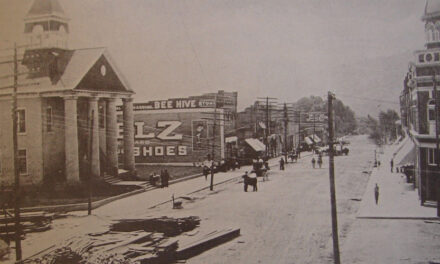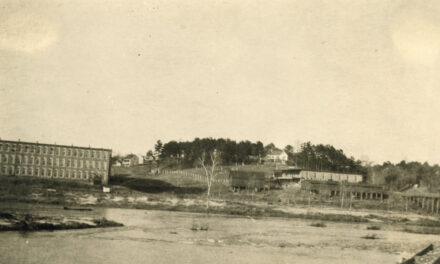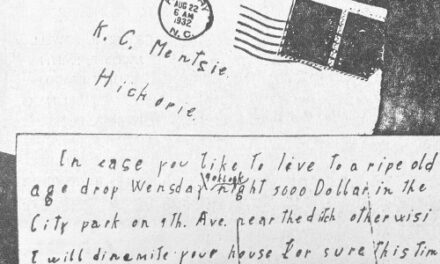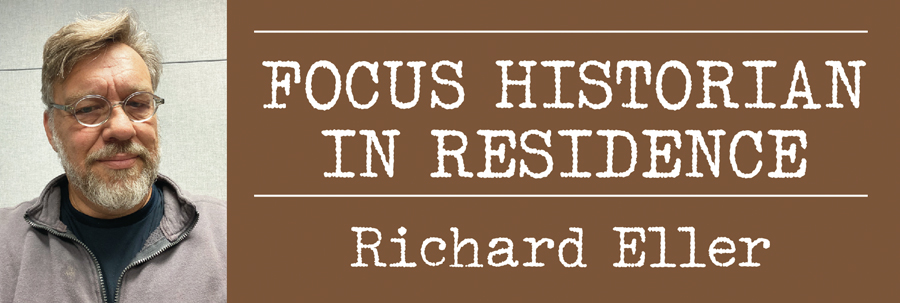
Among Hickory’s prominent writers was, what was called at the time a “poetess,” Emma Ingold Bost. Her 1920 book, Songs in Many Keys delivered in verse, stories about her life in Hickory. In it, there were observations about things going on in the kitchen, the changing of the seasons, the landscape. She dealt with all aspects of life including events that were much bigger than her everyday existence.
The work reveals that those of a century ago were largely preoccupied by the same type of stuff that concern us today, family, aging, war. It’s all in there. When she wrote, the world was just coming out of its first modern global conflict. She, like everyone else in the United States, knew those who were forever changed by what was called at the time, the Great War. They had no way of knowing that later we would term it World War I, since a second one was already brewing. The loss of life and destruction was profound and moved her to write a number of verses about the carnage.
On January 4, 1920 a memorial service was held for Lieutenant Orin Morrow Sigmon at Corinth Reformed Church. At the event, she dedicated a poem she wrote to him as a person who “made the Supreme Sacrifice.” To the tune of “Drink to me only with thine eyes,” Mrs. J.H. Shuford sang these words, in part:
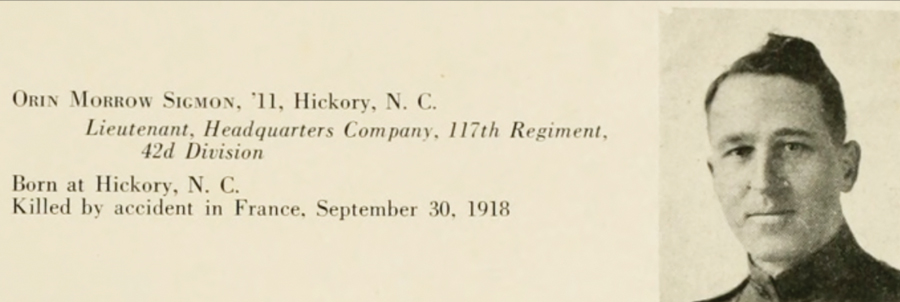
Photo: The subject of Emma Ingold Bost’s poem, “Lower The Flag.”
“Lower the flag! The Service Flag, Glad that its need is o’er;
Proudly unfurled, through weary years, Each dear-loved star it bore.
Lower the flag! Our Service Flag! We love each shining fold;
Pride in each star of deepest blue, Tears for the star of gold.
“Lower the flag while hearts beat high, For deeds our boys have done:
Heroes so true, we rev’rent stand to honor each brave son.”
In this poem and several others from her book, Emma Ingold Bost attempted to put the death of Lieutenant Sigmon into the context of the wider war and tried to give meaning to the ceremonies that followed as a thankful remembrance. The loss of Lt. Sigmon was shocking for both those that knew him back home and his comrades in arms in France. He participated in some of the most consequential battles of war including the 2nd Battle of the Marne and “the reduction of the St. Mihiel salient.”
Those back in Hickory, including the poet who had Orin in mind as she wrote, recalled him as “one of Hickory’s most popular young men.” He received a mechanical engineering degree from NC State and worked for Piedmont Wagon when the war came. He took his skills to France where, on September 30, 1918 he was killed in a train accident, just over a month before the war ended. He was just 30 years old. His friends called him “Si.” An Army pal wrote to his sister, Mrs. F.P. Abernethy, commenting that “in losing him, we have lost a man of quality, esteem, principle, aspiring ability and above all a Christian, but we console ourselves to know that he, among many, has sacrificed his courageous life for a noble, just, and righteous cause.”
Her work paid tribute to his sacrifice.




